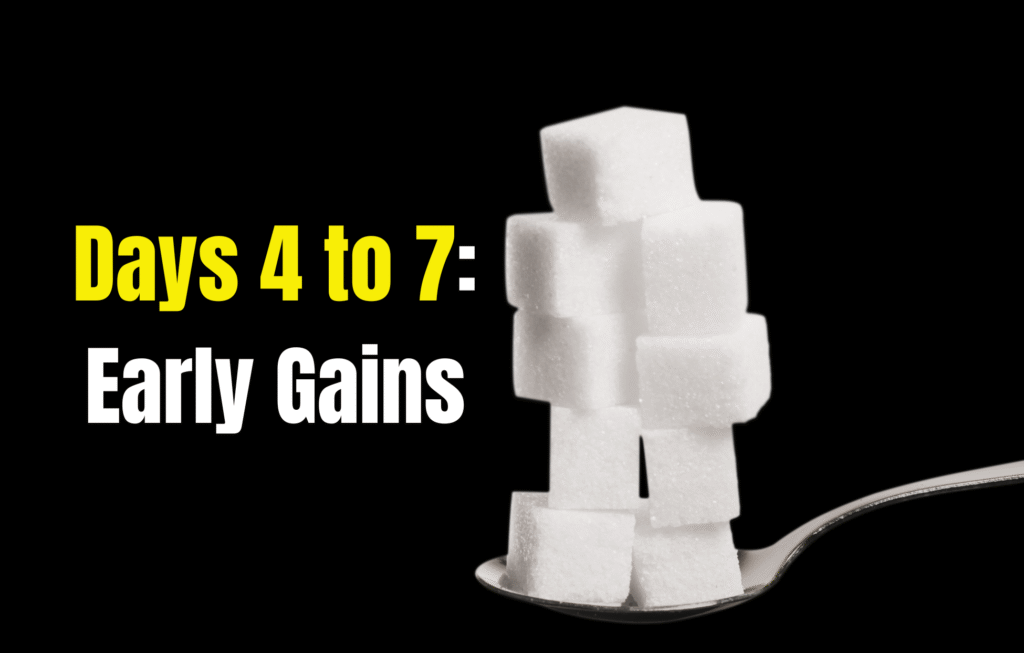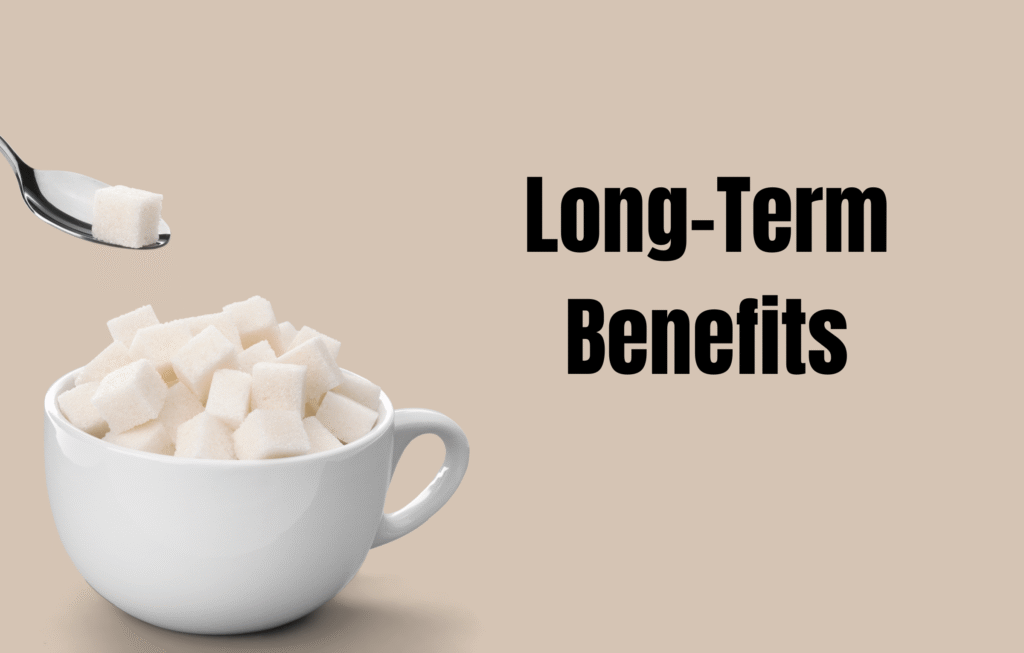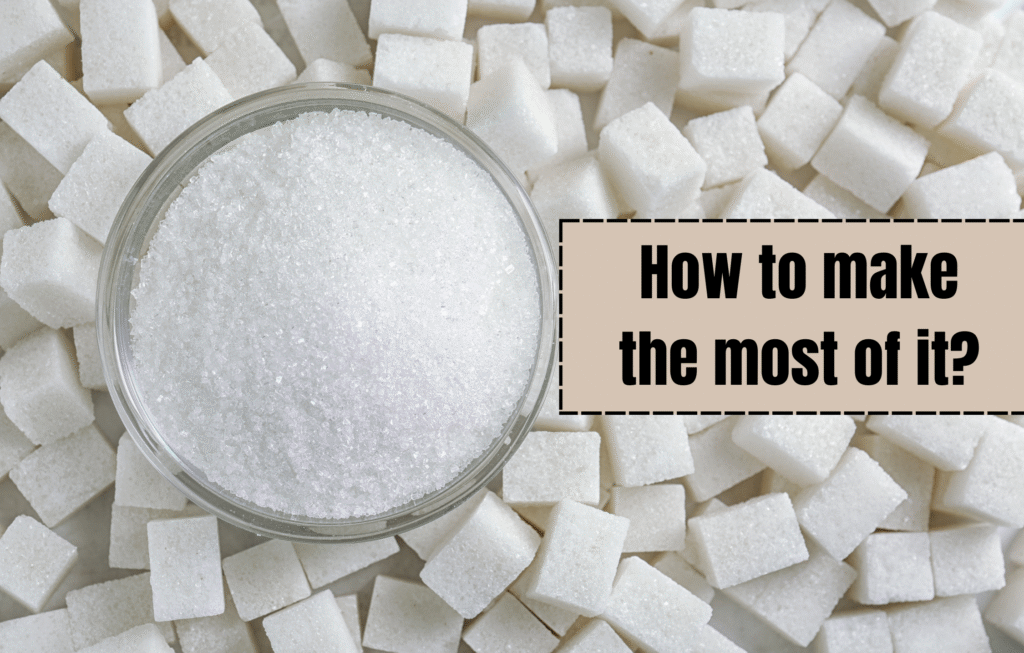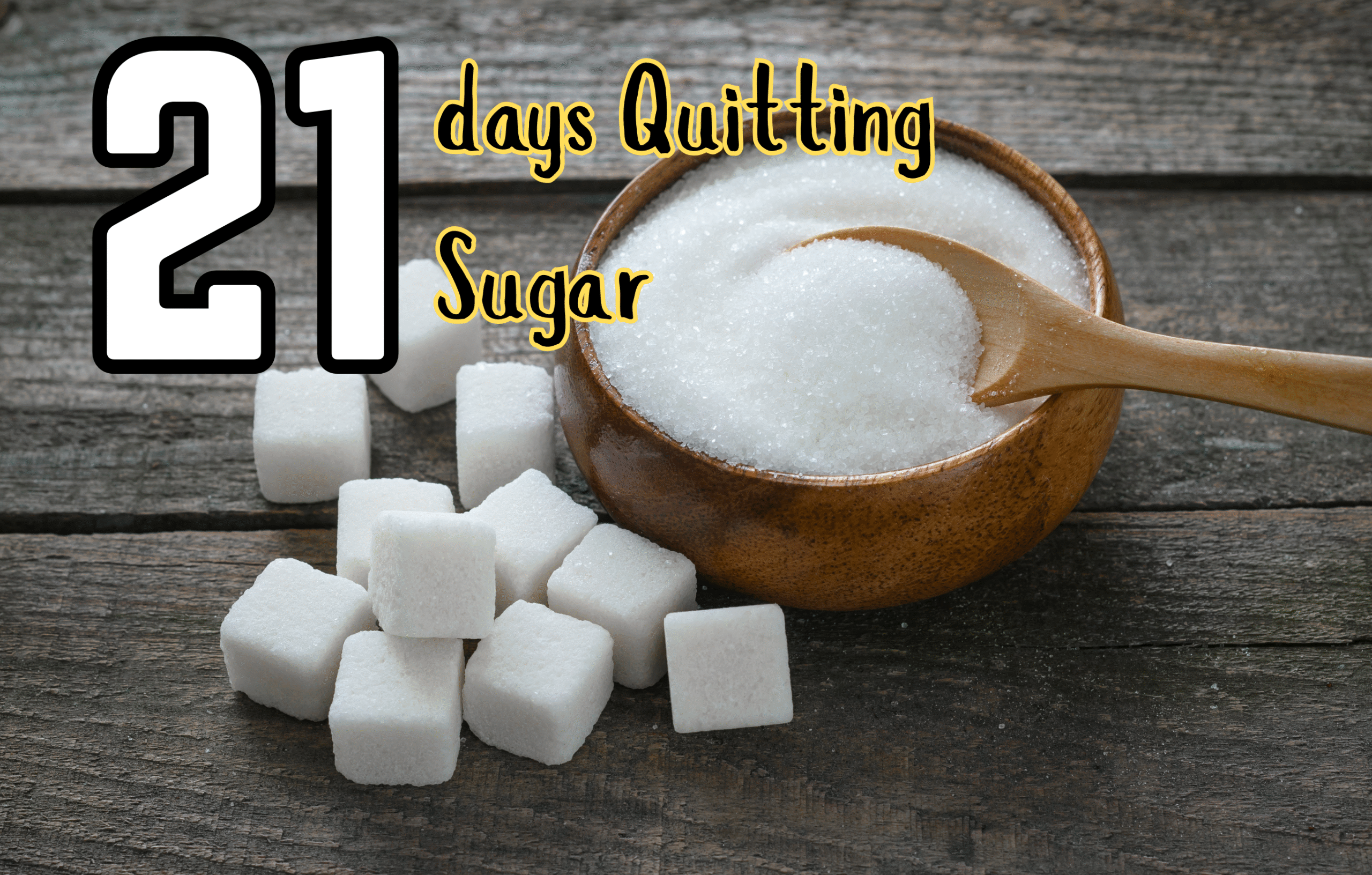What do we mean by sugar?
“Sugar” in this context means added sugar, like white sugar, jaggery syrup, high fructose corn syrup, sweets, cakes, cookies, cold beverages, packaged foods, etc.
That is not to say that we should give up on the natural sugar available in fruits, vegetables, or milk. The actual impact occurs when we refrain from processed sugar and sweet foods.
First 3 Days: Onset of the Change (A Little Challenging Time)
Physical Feelings:
Your body is shocked when you quit sugar suddenly, as it has been relying on it for such a long time.
- You feel tired, lazy, and lethargic.
- You feel irritable, restless, and tense with mood swings.
- You feel headaches or mild dizziness, nausea, and upset stomach.
- Cravings for sweets are extremely intense – you want to eat something sweet constantly.
What is going on in the body?
- The body’s blood sugar levels start leveling out because of the absence of sugar.
- Insulin levels (which maintain sugar levels in the body) get better.
- The body starts burning fat slowly, as it no longer gets sugar to fuel itself.
Days 4 to 7: Early Gains

Physical Experiences:
- The body starts to feel a bit better. Energy levels improve.
- Mood is better, and irritability lessens.
- Sleep may get slightly better, but some issues may still arise.
- Issues such as bloating and water retention reduce.
- Sweet cravings may still be present, but they occur less often.
Days 8 to 14: Deeper effects start to emerge
Physical Changes:
- The body now operates better without sugar. Blood sugar becomes easier to manage.
- Blood pressure and certain heart issues improve.
- Liver fat deposits start reducing, particularly if having eaten a lot of sugar before.
Changes one can see:
- Skin on the face feels clearer, zits reduce, and inflammation reduces.
- Sleep and digestion become better.
- Sugar-related “crashes,” i.e., sudden energy loss, decrease.
Days 15 to 21: Stability and Strong Benefits
The body now nearly adjusts to the new system.
Improvements in health:
- Energy levels are stable all day – no huge drops are experienced.
- Inflammation in the body decreases – so does joint pain and fatigue.
- Fats such as cholesterol and triglycerides start to improve as well.
- Liver function can be improved.
Psychological and Behavioral Gains:
- Cravings for sweets are much less.
- The mind functions more clearly – “brain fog,” or a cloudy sensation, is minimized.
- Some weight loss will occur, particularly around the abdominal region.
Long-Term Benefits

Though 21 days is not really a long period, some benefits start to show up within that time and can extend even longer:
- The immune system gets better. Sugar weakens white blood cells.
- The heart gets healthier.
- The body’s mineral absorption of calcium, magnesium, and zinc improves.
What complications may arise?
Quitting sugar is not easy. Some issues crop up, particularly at the start:
- Headaches, mood swings, and irritability are all common.
- You might feel weak as you no longer receive the energy you used to receive from sugar.
- There are some changes in the digestive system, such as constipation or loose stomach.
- Skipping sweets impacts your social life, such as being uncomfortable at parties, weddings, and festivals.
- Some begin substituting sugar with excess fat or artificial sweeteners, which is unhealthy.
What does new research from 2024-2025 say?
New research has brought some new findings to light:
- It has been proven that even when a person cuts back on sugar for a mere 2-3 weeks, the heart and liver health will improve.
- Greater emphasis is now put on mental benefits like enhanced mood, improved sleep, and focus, rather than weight loss.
- Kidney function has also been found to improve in those with pre-diabetes or insulin resistance.
- Instant changes are also noticed in the skin – like less acne and a regain of glow.
How to make the most of it?

If you intend to give up sugar for 21 days, remember the following:
- Consume whole food instead of sugar – veggies, lentils, fruits, protein, and healthy fat.
- Consume high fiber foods – this will keep you full and enhance digestion.
- Stay hydrated – do not get dehydrated or tired.
- Sleep well – it balances hormones and lessens cravings for sugar.
- Be patient – some days will be tough, but your body will get used to it and you’ll begin to notice the difference.
What difference do you feel after 21 days?
Let’s finally summarize the advantages of avoiding sugar for 21 days:
- Energy levels are steady all day long – without crashes or fatigue.
- Mood swings reverse, irritability subsides.
- Skin on face observes changes – fewer breakouts, more glow.
- A bit of weight reduction – water and fat.
- Digestion becomes better – It doesn’t feel like it’s dragging your stomach down.
- Lowers your chances of getting diabetes and hormonal imbalances.
- Slowly eliminates your desire for sweets – you don’t want to eat something sweet all the time.
FAQs
What is “sugar” in this challenge?
It means added sugars such as white sugar, jaggery syrup, sweets, cakes, cookies, cold drinks, and packaged foods—not natural sugars from fruits or milk.
Can I have fruits while quitting sugar?
Yes, fruits have natural sugars and can be consumed. The challenge is about restricting processed and added sugars.
What occurs during the first 3 days of sugar quitting?
You can get dizzy, irritable, experience headaches, and have an overwhelming desire for sugar as your body acclimatizes to the shift.
SamhithaHealth & Wellness Content Writer
a Health & Wellness Content Writer with over 6 years of experience creating research-based health articles. She specializes in nutrition, weight management, diabetes care, skin health, and healthy lifestyle practices. Here content is carefully written using trusted medical and scientific sources to ensure accuracy and clarity for readers.

